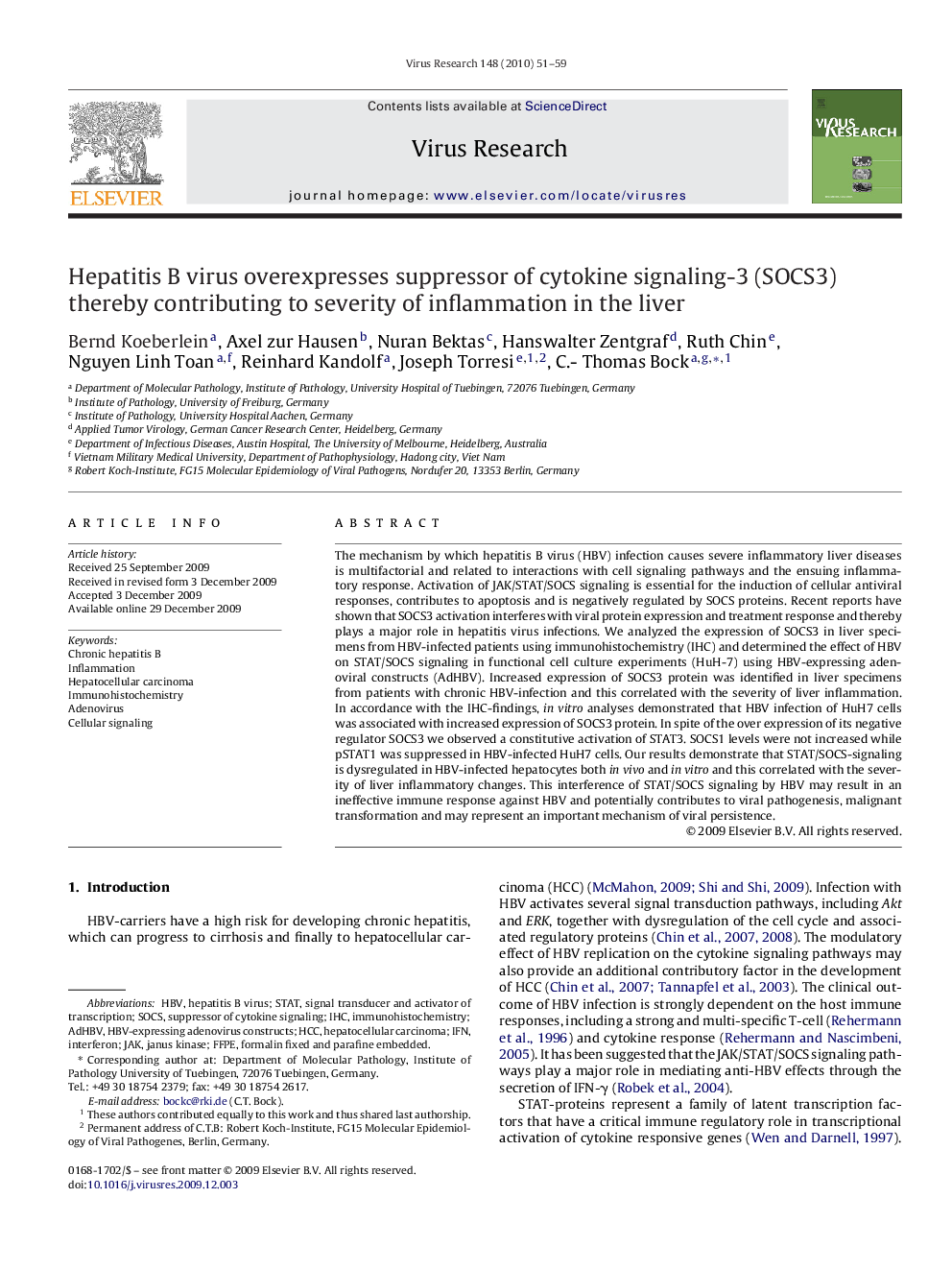| Article ID | Journal | Published Year | Pages | File Type |
|---|---|---|---|---|
| 3429812 | Virus Research | 2010 | 9 Pages |
The mechanism by which hepatitis B virus (HBV) infection causes severe inflammatory liver diseases is multifactorial and related to interactions with cell signaling pathways and the ensuing inflammatory response. Activation of JAK/STAT/SOCS signaling is essential for the induction of cellular antiviral responses, contributes to apoptosis and is negatively regulated by SOCS proteins. Recent reports have shown that SOCS3 activation interferes with viral protein expression and treatment response and thereby plays a major role in hepatitis virus infections. We analyzed the expression of SOCS3 in liver specimens from HBV-infected patients using immunohistochemistry (IHC) and determined the effect of HBV on STAT/SOCS signaling in functional cell culture experiments (HuH-7) using HBV-expressing adenoviral constructs (AdHBV). Increased expression of SOCS3 protein was identified in liver specimens from patients with chronic HBV-infection and this correlated with the severity of liver inflammation. In accordance with the IHC-findings, in vitro analyses demonstrated that HBV infection of HuH7 cells was associated with increased expression of SOCS3 protein. In spite of the over expression of its negative regulator SOCS3 we observed a constitutive activation of STAT3. SOCS1 levels were not increased while pSTAT1 was suppressed in HBV-infected HuH7 cells. Our results demonstrate that STAT/SOCS-signaling is dysregulated in HBV-infected hepatocytes both in vivo and in vitro and this correlated with the severity of liver inflammatory changes. This interference of STAT/SOCS signaling by HBV may result in an ineffective immune response against HBV and potentially contributes to viral pathogenesis, malignant transformation and may represent an important mechanism of viral persistence.
